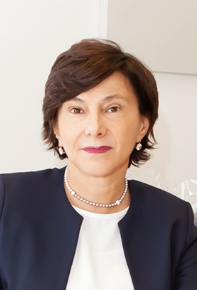Quick search
CTRL+K
Quick search
CTRL+K


Since 2010, the Global Law Experts annual awards have been celebrating excellence, innovation and performance across the legal communities from around the world.
posted 2 years ago
The European Regulations on medical devices and in vitro medical devices lay down precise rules on the clinical investigations to be undertaken. Article 16 of the draft Decree adapting the Italian legal system to the MDR and IVDR introduces some important provisions concerning precisely these investigations. Although the MDR has regulated the substantive content of clinical investigations in great detail in no less than twenty articles (from Article 62 to 82), ample space has been left to the Member States with regard to aspects of administrative management and procedure, such as the submission of applications, communications between sponsor and Ministry, ethics committees, and the requirements for the facilities in which investigations are to be conducted.
It is therefore worth taking a first look at Article 16, which, although subject to amendments before approval, already sketches the future framework. This Article takes up some of the requirements of the MDR, introduces new rules to implement the Regulation, and refers to four ministerial decrees yet to be issued.
Initiation of clinical investigations
First of all, Article 16 establishes that no clinical investigation may be initiated without sending the appropriate communication to the Ministry of Health: given that a clinical investigation is a ‘systematic investigation involving one or more human subjects, undertaken to assess the safety or performance of a device’ (Article 2(45) MDR), it follows that all studies in which a human being takes part and whose purpose is to assess the safety and performance of a medical device must be communicated to the Ministry. Then, pursuant to Article 70 of the MDR, the Ministry will consider whether or not the investigation falls within the scope of the Regulation and, if so, it will initiate the assessment and validation phase of the application.
Disciplines to be applied
Taking the MDR in its entirety, clinical investigations are divided into the following categories:
For all other clinical investigations, Art. 82 MDR is applicable.
Clarification on Article 82
This lays down the rules that are to be applied to clinical investigations other than those carried out as part of an evaluation for the purposes referred to in Article 62 (verification of the purpose of the device, clinical benefits, safety). Although the provision does not clarify what these investigations are – nor does the implementing decree – it is believed that they could be clinical investigations that are carried out, for example, by a healthcare facility or other entity that does not market the device (and is therefore not required to conduct a clinical evaluation) for the purpose of improving clinical practice in healthcare: in essence, what in the pharma industry are called ‘non-profit’ studies.
Submission of applications
The application will be submitted with the relevant documentation and the favourable opinion of the Ethics Committee, through the electronic system referred to in Article 73 MDR. Regarding the timeframe for starting the investigation, in addition to the provisions of Article 70 MDR it is stipulated that:
A separate decree will define the administrative procedures for submitting the application, for validation and its assessment, and for issuing the authorisation and notification.
Communications between sponsors and the ministry
Communications from sponsors may concern:
The terms of any such communications between the sponsor and the Ministry will be defined by a specific decree of the Ministry of Health.
Ethics Committees
Ethics Committees will have to apply the requirements of Articles 62 to 80 when issuing their opinions. As far as their composition, organisation and functioning is concerned, as well as the procedures for issuing opinions, the national rules will apply in full. Here we are in full transition. Law 3/2018 (so-called Legge Lorenzin) stipulated the reorganisation of the matter within 60 days, but to date (after four years) the draft decree is still under discussion.
It should also be noted that the Coordination Centre has recently published a guidance document entitled “Valutazione delle indagini cliniche sui dispositivi medici da parte dei Comitati Etici secondo il Regolamento UE 2017/745” (Evaluation of clinical investigations on medical devices by Ethics Committees under EU Regulation 2017/745), which aims to standardise the behaviour of Ethics Committees in issuing opinions in the medical device sector.
Conflicts of interest
Article 71 of the MDR states that it is the responsibility of the Member States to ensure that the persons in charge of validating and assessing the application, or making a decision on it, have no conflicts of interest, are independent from the sponsor, the investigators involved and the natural or legal persons financing the clinical investigation, and are free from any undue influence. Article 16 of the draft decree postpones the national definition of these aspects to a separate decree.
The facilities involved
Clinical investigations on MDs must be carried out in facilities that have similar requirements to those of the facility where the device will be used (Article 62(7)). These suitability requirements will also be established by a specific decree. The Ministry of Health may carry out activities aimed at verifying, also on site, that the investigations are conducted in accordance with the approved investigation plan and with all current clinical investigation requirements.
Author


There are no results matching your search.
Resetposted 9 hours ago
posted 21 hours ago
posted 21 hours ago
posted 4 days ago
posted 4 days ago
posted 4 days ago
posted 5 days ago
posted 5 days ago
posted 5 days ago
posted 7 days ago
There are no results matching your search.
ResetFind the right Legal Expert for your business
Sign up for the latest legal briefings and news within Global Law Experts’ community, as well as a whole host of features, editorial and conference updates direct to your email inbox.
Naturally you can unsubscribe at any time.
Global Law Experts is dedicated to providing exceptional legal services to clients around the world. With a vast network of highly skilled and experienced lawyers, we are committed to delivering innovative and tailored solutions to meet the diverse needs of our clients in various jurisdictions.